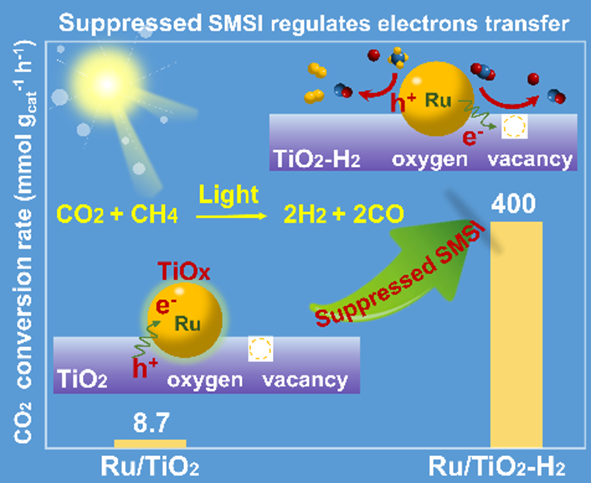| Location: Home > Papers |
| First Author: | LI Qiang |
| Abstract: |
Strong metal-support interactions (SMSI) have gained great attention in the heterogeneous catalysis field, but its negative role in regulating light-induced electron transfer is rarely explored. Herein, we describe how SMSI significantly restrains the activity of Ru/TiO2 in light-driven CO2 reduction by CH4 due to the photo-induced transfer of electrons from TiO2 to Ru. In contrast, on suppression of SMSI Ru/TiO2-H2 achieves a 46-fold CO2 conversion rate compared to Ru/TiO2. For Ru/TiO2-H2, a considerable number of photo-excited hot electrons from Ru nanoparticles (NPs) migrate to oxygen vacancies (OVs) and facilitate CO2 activation under illumination, simultaneously rendering Ruδ+ electron deficient and better able to accelerate CH4 decomposition. Consequently, photothermal catalysis over Ru/TiO2-H2 lowers the activation energy and overcomes the limitations of a purely thermal system. This work offers a novel strategy for designing efficient photothermal catalysts by regulating two-phase interactions.
The effect of suppressive SMSI on regulating electrons transfer and the catalytic performance |
| Contact the author: | JIA Hongpeng |
| Page Number: | |
| Issue: | |
| Subject: | |
| Impact Factor: | |
| Authors units: | |
| PubYear: | |
| Volume: | |
| Publication Name: | Angewandte Chemie International Edition |
| The full text link: | https://doi.org/10.1002/anie.202300129 |
| ISSN: | |
| Appendix: |
